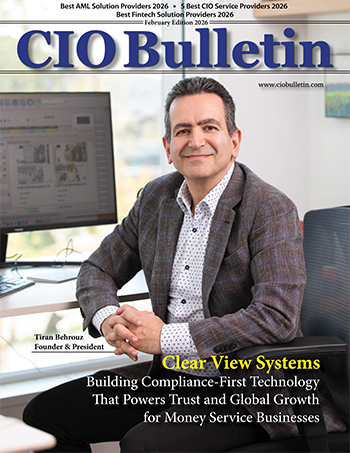Home Industry Banking and finance The Role of Prop Trading Firms...
Banking And Finance

CIO Bulletin
25 October, 2023
Proprietary trading firms, also known as prop trading firms, play a role in today's paced financial markets. They contribute significantly to enhancing market efficiency and providing liquidity. Unlike institutions that primarily trade for clients, these firms employ skilled traders to trade their capital across various asset classes.
One of the advantages prop trading firms have is their ability to quickly adapt and seize opportunities in response to changing market conditions. They employ traders who leverage trading technology to execute trades precisely and quickly. This agility enables them to generate market profits, making them significant contributors to price discovery.
In this discussion, we will explore the role played by a forex prop trading firm in today's markets and delve into the benefits they bring;
A primary responsibility of prop trading firms is to provide market liquidity. Liquidity refers to how an asset can be bought or sold without impacting its price. Proprietary trading firms play a role in maintaining a healthy trading environment through participation in the market. They ensure several buyers and sellers at any given time, which helps narrow the bid-ask spreads and facilitates trade execution for other participants.
Moreover, prop trading firms contribute to reducing price volatility and fostering stability in the market. Their employment of algorithmic trading strategies and high-frequency techniques enables them to enter swiftly and exit positions, thereby enhancing market efficiency.
Another area where prop trading firms excel is identifying and capitalizing on pricing disparities across markets or related securities. Referred to as risk arbitrage, this strategy involves offsetting asset positions with correlated price relationships. By doing these, firms can seize profits from price imbalances and capitalize on market inefficiencies.
One form of risk arbitrage commonly employed by prop traders is merger arbitrage. Here, they leverage their expertise to anticipate the outcomes of mergers and acquisitions, positioning themselves accordingly. They identify trading opportunities by analyzing factors such as deal completion risks, regulatory hurdles, and market reactions.
Additionally, prop trading firms play a role as market makers. They continually provide bids and ask prices for securities to ensure buyers or sellers are always in the market.
Market makers are willing to purchase securities at the bid price and sell them at the asking price, profiting from the difference between them.
By quoting bid and ask prices and intervening during periods of trading activity, market makers help prevent excessive price fluctuations and maintain a stable trading environment. Proprietary trading firms excel in this role because of their trading infrastructure and risk management capabilities.
Trading firms employ various trading strategies across different asset classes and markets. This diversification enhances their ability to generate profits in challenging market conditions consistently.
These firms may use trading strategies involving mathematical models and algorithms to identify profitable opportunities. Alternatively, they may engage in high-frequency trading using technology and fast execution systems to conduct trades within short timeframes.
Additionally, proprietary trading firms may specialize in asset classes like equities, options, futures, or currencies. This specialization allows them to develop expertise in their chosen market and exploit emerging trading opportunities.
Proprietary trading firms prioritize effective risk management and capital allocation strategies. They are skilled at assessing and managing the risks associated with their trading activities, which is crucial to their long-term success.
These firms typically employ sophisticated risk models and real-time monitoring systems to evaluate the potential impact of market fluctuations on their portfolios. By diversifying their trading strategies and asset classes, they spread risk and reduce exposure to any single market event.
Furthermore, capital allocation is a critical aspect of their operations. Prop trading firms carefully allocate their capital to different trading strategies, asset classes, and markets based on risk-return profiles. This strategic allocation ensures that they optimize their returns while minimizing potential losses and maintaining financial stability and sustainability in the volatile trading world.
In conclusion, proprietary trading firms play a role in today's markets by providing liquidity, improving market efficiency, and contributing to price discovery.
Proprietary trading firms possess a range of strengths that contribute to the market's vitality, effectiveness, and inclusivity. Thanks to their agility, advanced technology, and diverse trading approaches, they play a role in maintaining an accessible marketplace for all participants.

Insurance and capital markets







